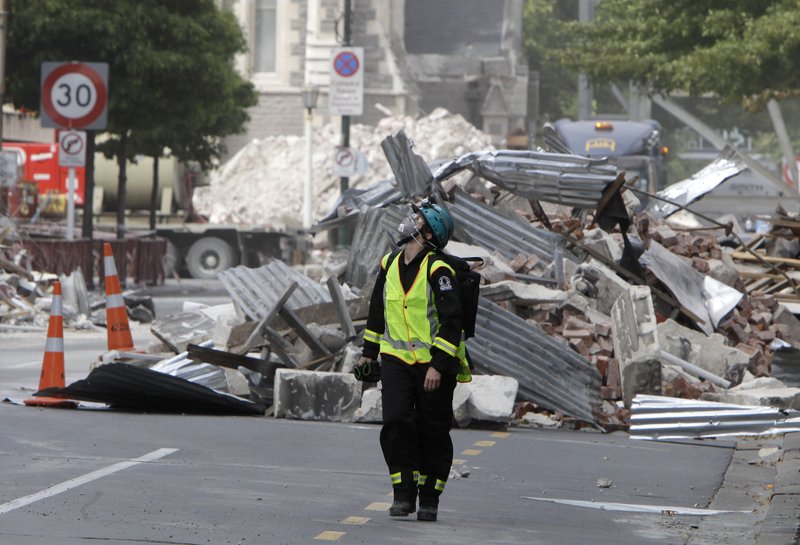WELLINGTON, New Zealand -- Before New Zealand began its four-week lockdown to fight the coronavirus, a reporter asked Prime Minister Jacinda Ardern what would happen if an earthquake struck while everybody was sequestered in their homes.
"Why on earth would your mind go there?" Ardern quipped back.
Every year, the world contends with devastating typhoons, wildfires, tsunamis and earthquakes. The dynamic doesn't change just because the globe also happens to be fighting a pandemic.
What has changed for the worse, however, is the ability of nations to prepare for and respond to natural disasters. Not only that, but experts also fear the usual protocols for coping with the aftermath of such disasters could further spread the virus, compounding the death toll from both.
[CORONAVIRUS: Click here for our complete coverage » arkansasonline.com/coronavirus]
Carlos Valdes, who dealt with two major earthquakes during five years until 2018 as Mexico's disaster response director, said that during his tenure, the Mexican government did not have any protocols for dealing with simultaneous disasters like an earthquake and a pandemic.
"That is a scenario that we hadn't even contemplated," he said.
Valdes, a seismologist who now works in Costa Rica, said he has since sent Mexican authorities his thoughts on how to handle such a situation. Among other things, he said, is the need to reserve one hospital for earthquake victims to separate them from infectious coronavirus patients.
But whether Mexico has taken action on such ideas remains unclear. Xyoli Perez, the head of the National Seismological Service, said experts who monitor quakes can work from home during the pandemic but she didn't address whether they had specific procedures for a dual disaster.
Some natural disasters are predictable, like the wildfires that scorch California most summers. But already, the virus has hindered preparations there after a particularly dry winter.
The U.S. Forest Service has canceled its planned seasonal burns. The hundreds of firefighters who come to assist each year from other countries may not be able to travel. And the camps that usually house thousands of firefighters from across the U.S. pose a big risk of spreading the virus.
"Picture several hundred tents on a football pitch, rows of porta potties, shared kitchens, and crews of 15 people getting on a bus with all their equipment," said Michael Wara, the director of the Climate and Energy Policy Program at Stanford University. "Well, with this virus, you can't put 15 people on a bus. They're really trying to do a rethink, and they have not yet gotten to the end of that process."
Earthquakes are also an ever-present risk in California, Wara says, but officials haven't yet thought through alternatives to their evacuation plans, which typically involve sheltering hundreds of people together in places like school gymnasiums, another situation primed to spread the virus.
Perhaps most concerning, Wara says, is that hospitals and medical staff swamped with virus patients may not be able to cope with additional victims from a natural disaster.
Ardern said that as leader of an earthquake-prone country sometimes called the Shaky Isles, she is always planning for the possibility of earthquakes. She said social distancing protocols would clearly need to be sacrificed by any crews who responded to a big quake.
"Of course, at that point, you're in a position of wanting to make sure that you are saving lives," she said.
But saving lives from a natural disaster that requires people working shoulder-to-shoulder and protecting people from a virus by requiring them to keep their distance is a dilemma that many countries are only just beginning to contemplate.
Information for this article was contributed by Mark Stevenson, Mari Yamaguchi, Jim Gomez and Dusan Stojanovic of The Associated Press.
A Section on 04/05/2020
